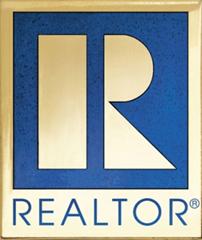













We look forward to assisting you and providing more
Information or answering any questions you may have. Please feel free to contact us at
Copyright © 2002-2016 American Organization of Companies LLC, All Rights Reserved
Homeowners Options
Lease-To-Buy May Be a Good Option
Many people who are struggling to get mortgages are finding comfort in a growing trend: lease-options. This is a contract that allows renters to lease the property and, at the end of their lease, they have the option to buy the home.
Hopeful buyers with poor credit are finding the rent-to-own option creates an opportunity to repair their credit while positioning them for homeownership. It's a win-win situation. Sellers find that properties that once sat vacant now offer cash flow.
The concept, while not new, is gaining momentum. There are a number of reasons buyers are finding this option appealing and it's not just because of bad credit. Some buyers are not sure if they're ready to own a home and take on all the responsibilities and extra costs that go with homeownership; the lease-purchase contract gives the buyers a chance to give homeownership a test drive.
Individual sellers in the housing resale market are considering this method to help get their homes sold and so, too, are developers who have found they're loaded up on properties they can't sell.
So, some developers are trying the rent-to-own program in hope of getting condos sold. "There is one development where the renters sign an agreement that says 'If they would like to purchase the unit that they are renting any time within the next year, they can do so for a fixed price and they would have first dibs on that,"
Understanding the lease-option is very important. There are various differences in the way this type of contract can be drafted, so it is critical to hire experts to help negotiate the process to make sure you understand the terms and are protected. Here is some basic information about leasing with the option to buy a property.
Typically, in return for the landlord/seller extending the offer to buy the property after a period of time (usually one to three years) at a predetermined price, the tenant/buyer has to pay an upfront option (fee). That fee is generally non-refundable. A portion of the monthly rent may be applied toward the down payment to purchase the home.
Advantages for the buyer/tenant
stated, you are the only one who has the option to buy the
property.
and, when you purchase the home, is applied toward the
down payment.
contract.
out.
home goes up in value and you have already locked in a
specific sale price for the home that is less than how much
it appreciates. However, the reverse is true too. You could
end up paying more for the home later on if it depreciates
and a set price was locked in for a higher amount than
what the home is worth when your lease-option is up.
Advantages for the seller/landlord
sell your property later on.
upfront fee (option money).
you are marketing to traditional buyers and also renters and
investors.
care of the home since the tenants may want to buy it in
the future.
while you have tenants in the home.
tenants in your home who are working toward buying the
home.
Things to consider when utilizing a lease-option
photos to document the condition of the home.
taxes, and insurance for the property.
the option to buy the home at the end of.
the specific information that a sales contract would have in
order to be enforceable.
It's always a good idea, when purchasing real estate, to contact experts to assist you through the process to ensure that you understand the contract and ultimately complete a successful transaction.
Sponsored By
"In A Tough Market, It Has Advantages For Both Buyers And Sellers"
By Phoebe Chongchua
RESIDENTIAL
RESIDENTIAL - Tools & Tips

